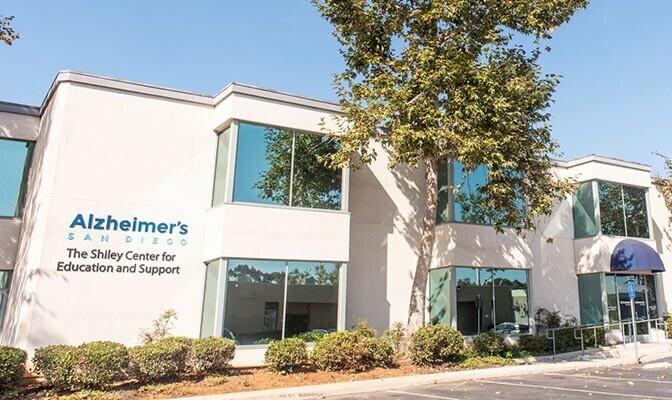AlzheimerŌĆÖs San Diego: Advancing Education and Support for Families and Caregivers
Empowering Families Through Comprehensive Community Education
AlzheimerŌĆÖs San Diego is intensifying its dedication to assisting families and caregivers by expanding its community education programs. With AlzheimerŌĆÖs disease affecting over 6 million Americans as of 2024, the need for accessible, practical knowledge has never been greater. The organization offers a variety of workshops and training sessions designed to provide caregivers with essential skills, deepen their understanding of dementia progression, and connect them with valuable resources. These efforts aim to alleviate caregiver stress, dismantle misconceptions about AlzheimerŌĆÖs, and enhance the overall well-being of those impacted within the San Diego region.
Core elements of these educational programs include:
- Engaging seminars facilitated by medical experts and seasoned caregivers
- Customized guides and instructional videos tailored for home-based care
- Support networks that encourage peer interaction and shared learning
| Program Name | Primary Focus | Length |
|---|---|---|
| Foundations of Caregiving | Essential caregiving techniques | 4 weeks |
| Recognizing Early Signs | Symptom awareness and diagnosis | 2 days |
| Peer Support Circles | Community encouragement and sharing | Ongoing |
Enhancing Caregiver Competence with Innovative Training Methods
AlzheimerŌĆÖs San Diego has adopted a forward-thinking approach to caregiver education by incorporating interactive, scenario-based training that builds practical skills and confidence. These immersive sessions simulate real-life caregiving challenges, enabling participants to practice effective communication, manage difficult behaviors, and develop emotional resilience. This hands-on methodology ensures caregivers are better equipped to provide compassionate, respectful care to their loved ones.
- Realistic role-playing exercises reflecting daily caregiving situations
- Facilitated group discussions encouraging collaborative problem-solving
- Personalized educational materials designed to meet diverse caregiver needs
Recent participant feedback reveals notable gains in both skill proficiency and emotional well-being. Data from the latest training cohort indicate a substantial rise in caregiver confidence, which correlates with improved care quality and a decrease in burnout rates.
| Skill Category | Confidence Before Training | Confidence After Training |
|---|---|---|
| Communication Skills | 58% | 87% |
| Behavioral Management | 45% | 80% |
| Emotional Strength | 50% | 85% |
Strengthening Support Through Healthcare Partnerships
Collaborations with healthcare professionals are pivotal in building a comprehensive support network for AlzheimerŌĆÖs families and caregivers. AlzheimerŌĆÖs San Diego works closely with physicians, nurses, social workers, and clinical educators to integrate the latest research findings into community programs. This synergy ensures that educational content remains current and that caregivers receive personalized guidance aligned with best medical practices.
Key collaborative goals include:
- Holistic Care Models: Merging clinical expertise with community resources for seamless support.
- Joint Training Initiatives: Workshops co-created with healthcare specialists to enhance caregiver skills.
- Coordinated Resource Access: Simplifying connections to medical services and support networks.
- Continuous Professional Learning: Ongoing education for healthcare providers on emerging AlzheimerŌĆÖs treatments and care strategies.
| Collaboration Focus | Advantages |
|---|---|
| Healthcare Provider Education | Improved understanding of disease progression |
| Community-Based Workshops | Boosted caregiver confidence and skillsets |
| Patient-Centered Support Services | Enhanced quality of life through coordinated care |
Expanding Reach: Strategies for Underserved Communities
To broaden access to AlzheimerŌĆÖs education in underserved populations, AlzheimerŌĆÖs San Diego emphasizes partnerships with trusted local entities such as faith-based organizations, cultural centers, and grassroots groups. These collaborations enable the development of culturally sensitive programs that respect language diversity and community values. Additionally, the deployment of mobile education units and digital platforms helps overcome geographic and technological barriers, ensuring equitable access to vital information and support.
Effective outreach strategies include:
- Conducting multilingual workshops tailored to specific community needs
- Empowering local advocates to promote awareness and education
- Leveraging targeted social media campaigns to engage diverse audiences
- Offering free or affordable access to educational content and caregiving tools
| Outreach Method | Advantages | Community Benefits |
|---|---|---|
| Mobile Learning Units | Improves accessibility | Reaches remote and isolated areas |
| Community Ambassadors | Builds trust | Enhances engagement and program retention |
| Multilingual Resources | Promotes inclusivity | Expands educational reach |
| Digital Platforms | Offers flexible learning options | Connects younger and tech-savvy caregivers |
Conclusion: Building a Stronger Community Through Education and Support
AlzheimerŌĆÖs San DiegoŌĆÖs comprehensive education and training programs are vital in equipping patients, families, and caregivers with the expertise and confidence needed to face the complexities of AlzheimerŌĆÖs disease. By fostering awareness, reducing stigma, and promoting skill development, these initiatives contribute significantly to improving care outcomes and enhancing quality of life. As AlzheimerŌĆÖs continues to affect millions across the country, accessible and culturally competent education remains a cornerstone of effective community support. To learn more or participate in upcoming workshops, individuals are encouraged to visit AlzheimerŌĆÖs San DiegoŌĆÖs website and explore available resources.







